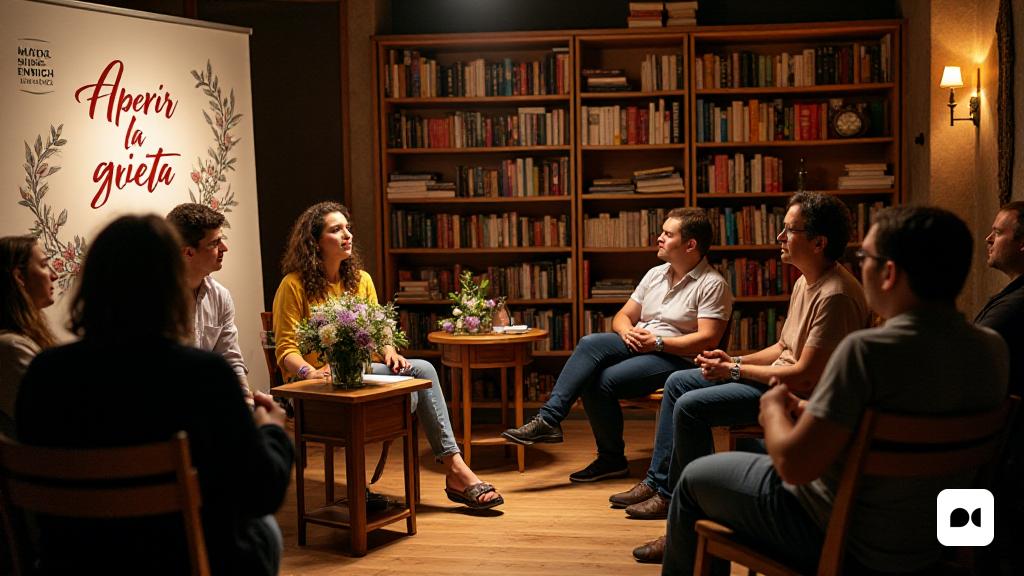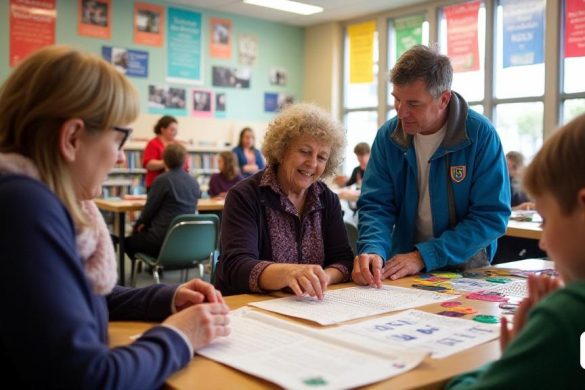Presentation of scratching the grieta
Last Friday, March 7, the Central Library of Igualada hosted the presentation of ‘Abre la Grieta’, a poetic collection that promises to be a tablem for night tablet. Edited by Esdrujula Ediciones, this book is a work by Maria Arnedo i Campozo, born in Los Guájares, Granada, in 1959. The event, which had the collaboration of the City Council of Igualada, was led by journalist Mireia Rubio and the writer Maria Enrich, who facilitated a warm dialogue with the author, sharing magical moments of the poemary.
The female stamp of the poemari
One of the highlights of scratching is her strong female imprint. Its edition has been overseen by Mariana Lozano, while Marta González has been in charge of the illustration of the roof, and Noelia Cortés has contributed his experience in the layout. The author, with a voice that resonates with lyricism, invites us to explore his life and his experiences through verses, which are both intimate and universal.
An emotional journey through poetry
Arnedo presents thirty-one poems that, despite their depth, are easy to read. Organized in three thematic sections: ‘From an upheaval, grow’, ‘to veces, due’ and ‘From dentro, mueerde’, their verses address from nostalgia to the most intimate introspection, dealing with topics such as the passage of time, lived experiences and loneliness. As the author explores the struggles and victories of her life, her writing becomes a tool for resilience and overcoming.
Maria Arnedo: A life of activism and creation
Maria Arnedo Campozo, who moved to Catalonia during her childhood, has had a rich life in social experiences and commitment. He began his active career in the social and political spheres before the first democratic elections, contributing to the creation of the first municipal formation of the PSC in Vilanova. With an academic training that includes studies of teaching and psychopedagogy, Arnedo has dedicated his life to education and defense of women’s rights.
Reflections on the female brotherhood
With the publication of scratching La Grieta, Arnedo not only offers us a window to his life, but also invites us to reflect on the brotherhood between women. His verses resonate with the strength of the female community and his capacity for mutual support. A fragment of the poem ‘Las otras’ perfectly encapsulates this idea: ‘… fueron the other / those who draw me / I dieron the voz / with still voices …’. These words remind us of the importance of the connections between women and the power of their shared experiences.




